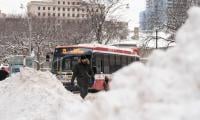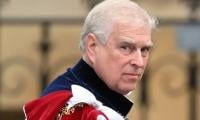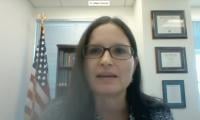So shall you reap
Part - III
Side-effect
The writer is a poet and author based in Islamabad.
We are where we are. Forces of history, international order, ideological confusion and the lust for power and wealth of our own dominant classes have together created this radicalised, individual and inward-looking society in the Muslim world which have both come to haunt their elites and intelligentsia and challenge the institutions of the state. These include the Pakistani society, which is my chief concern here.
Our society is fragmented, violent, hypocritical and squalid. In the last part of this series, let me attempt to only outline what we may think of collectively sowing now so that we reap a different harvest in the future – the harvest of political peace, social cohesion, economic prosperity, cultural advancement and individual freedoms.
Iqbal is prophetic when he says, ‘Fitrat Afraad Se Ighmaaz To Kar Leti Hai… Kabhi Karti Nahin Qaumon Ke Gunahon Ko Muaaf’ (Nature may let off individuals for their follies but never forgives a nation for its blunders).
Some of us in Pakistan may continue to shift the blame entirely on external forces – outside enemies, real or perceived. But the silver lining is the consciousness that is spreading about taking responsibility of how, why and what went wrong. And if we see without prejudice, nature has not spared our mistakes committed by powers that be on behalf of and involving the whole nation. Therefore, if we set the course right now it will still take some time to bring about the change we desperately need to see around us.
There are two aspects of this discussion – management of external issues and transformation of internal policies. This is a considered use of the words ‘management’ and ‘transformation’. We can at best manage external issues because of our limited authority and insignificant agency in determining how other countries behave and how world powers act. But we can still transform our society internally if there is a will. The more we advance internally, the more authority and agency we will enjoy eventually in the outside world.
The Pakistani state and its decision-makers have to decide once and for all that without making peace with immediate neighbours, no political peace in the region will ever be possible. The coming together of not just Pakistan and India but Iran, Afghanistan, Pakistan and India will significantly limit international interference in the whole region.
A similar policy shift is needed in India for its present political strategy may turn it into a monster with clay feet rather than an economic giant firmly holding the ground. The way a small landlocked country like Nepal was insensitively blockaded by India in the recent past to get its terms of engagement accepted by the Nepalese government and the ruthless way in which the disgruntled Kashmiris are being dealt with at the moment, will prove to be counterproductive for Indian interest.
But to push the agenda of political stability and peace in this country, Pakistan has to reach out to all our neighbours and establish and pursue a continuous dialogue between Tehran, Kabul, Islamabad and Delhi – irrespective of what is happening within these countries in terms of internal power struggles. There has to be an end to proxies fielded against each other – many of whom now make decisions on their own rather than being subservient to the state institutions that brought them to life.
Pakistan has to take responsibility; what it thought would bleed the adversary has in fact bled Pakistan much more. There is one Mumbai in India in recent history. A dozen Mumbais have happened in Peshawar, Lahore, Rawalpindi, Quetta and Karachi. Even small towns like Bhakkar and Shikarpur were not spared. There has to be an end to inciting hatred against each other, people of different ethnicities, nationalities, faiths or sects, on any pretext.
Unless there is peace, there can be little prosperity. There is no denying that unresolved conflicts must not be used to sever market linkages which benefit people. But when a conflict or a number of conflicts become central to defining relationships, the scope of economic opportunities gets grossly limited.
Economic development projects and programmes like the CPEC being implemented by China and Pakistan and other initiatives taken by other countries in the region will bring more dividends to people at large if commerce and trade, agriculture and industry are linked. For instance, the CPEC will only serve as a transit way for Chinese goods if it is not linked to Afghanistan, Iran and India. China has recently started a train service to Afghanistan which doesn’t run through Pakistan. China is also making a large investment in India, while it works with Pakistan.
It is Chinese wisdom that does not let the country’s border disputes, or its history of military conflict with another country, define its development priorities. We must not only benefit materially from Chinese industry and technology, we must also learn intellectually from their vision and insights – shmucks that we have become in understanding how the world has shaped up in this 21st century.
We have to balance our relationships with other Middle Eastern countries, Saudi Arabia, UAE, other Gulf countries and bring neutrality in our demeanour and policy options. Some good progress has been made in the recent past but that needs to be consolidated. Turkey is more opportunity and less problem for us historically, and a mutually beneficial course of economic development can be continued.
And last but not the least: in managing external issues, no poking our finger in someone else’s pie. And let’s not let others poke a finger in our pie. If all development aid coming into Pakistan, whether through international institutions or foreign governments, is in the know of the Economic Affairs Division of the Government of Pakistan, all charity and donations coming into Pakistan for a variety of religious institutions and outfits must also be in the know of the government. Both must be known and regularised.
For internal transformation, the same public and policy spaces need to be used that were used to make us what we have collectively become. These spaces are: political platform, legislation, curriculum and non-state organisation. Our political parties and leadership have to stop whipping up the emotions of common Pakistanis on the basis of faith or sect to make political gains.
They have to say on the floor of the house and when speaking to media, rallies or public meetings, what they stand for and practise personally. They have not only to enact legislation in favour of the people of Pakistan without discrimination on the basis of caste, creed, class, religion, sex and political association but enforce this legislation and make the state side with the weak and the oppressed.
Nearly half of the children who are of school-going age never see the door of a classroom or end up dropping out from a regular state-run school. And then the section of the elite and the intelligentsia has the gall to complain about the mushrooming of orthodox madressahs.
I would happily put my child in a madressah if she has no access to a regular school. It will cost no more than one large infrastructure project to bring all children to proper school. Even those who go to school are taught a curriculum that is jaded with prejudice and devoid of any sense of history or culture, civics and politics. We think modernising education means imparting computing skills to children. That has to change and change now.
Lastly, no non-state organisations, whether religious, ethnic or political, must be promoted or supported by the state to make political gains within or outside Pakistan. We need a perpetual dialogue between different schools of thought and political stakeholders. However, the state has to have the hegemony over power.
Concluded
Email: harris.khalique@gmail.com
-
 Meghan Markle’s Family Shares Important News Amid Estrangement
Meghan Markle’s Family Shares Important News Amid Estrangement -
 BAFTA, BBC, And Tourette’s Advocate John Davidson Issue Formal Statements For His Onstage Slur
BAFTA, BBC, And Tourette’s Advocate John Davidson Issue Formal Statements For His Onstage Slur -
 Kanye West's Malibu Beachfront Mansion Enters Controversy Again As Ex-employee Seeks $1M In Alleged Unpaid Wages
Kanye West's Malibu Beachfront Mansion Enters Controversy Again As Ex-employee Seeks $1M In Alleged Unpaid Wages -
 Tom Hanks To Lead Experimental Biopic About Distant Relative Abraham Lincoln
Tom Hanks To Lead Experimental Biopic About Distant Relative Abraham Lincoln -
 'CIA' Starring Tom Ellis Promises Fresh Take Beyond FBI Franchise
'CIA' Starring Tom Ellis Promises Fresh Take Beyond FBI Franchise -
 Congressman Tony Gonzales Faces Resignation Calls Amid Investigation
Congressman Tony Gonzales Faces Resignation Calls Amid Investigation -
 Royal Family Not Allowed To Play THIS Fun Game: ‘It Gets Too Vicious’
Royal Family Not Allowed To Play THIS Fun Game: ‘It Gets Too Vicious’ -
 Heidi Klum Exposes Harsh Modeling Rule She Faced While Expecting
Heidi Klum Exposes Harsh Modeling Rule She Faced While Expecting -
 US Women’s Hockey Team Skips State Of The Union After Gold Medal Win
US Women’s Hockey Team Skips State Of The Union After Gold Medal Win -
 Toronto Weather Forecast: Snow Storm Advisory Lifted After Icy Conditions
Toronto Weather Forecast: Snow Storm Advisory Lifted After Icy Conditions -
 How ‘deafness’ In Andrew Scandal Has Changed Monarchy ‘forever’
How ‘deafness’ In Andrew Scandal Has Changed Monarchy ‘forever’ -
 Gisele Bundchen Drops Postpartum Workout Secret She Calls A 'game Changer'
Gisele Bundchen Drops Postpartum Workout Secret She Calls A 'game Changer' -
 1 In 5 Teens Exposed To Unwanted Sexual Content On Instagram, Report Finds
1 In 5 Teens Exposed To Unwanted Sexual Content On Instagram, Report Finds -
 US Judge Aileen Cannon Issues Permanent Order In Trump Documents Case
US Judge Aileen Cannon Issues Permanent Order In Trump Documents Case -
 King Charles, Royals Are Not ‘bright’ Enough To Live In Mansions
King Charles, Royals Are Not ‘bright’ Enough To Live In Mansions -
 'Final Throw Of The Dice': Paramount Submits Highest Bid Offer To Warner Bros. In Last Round
'Final Throw Of The Dice': Paramount Submits Highest Bid Offer To Warner Bros. In Last Round



